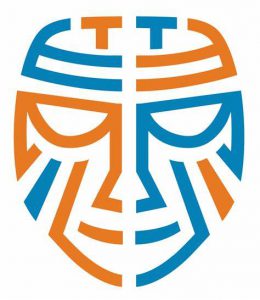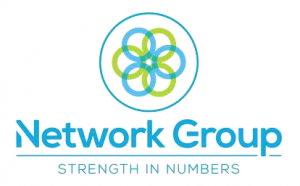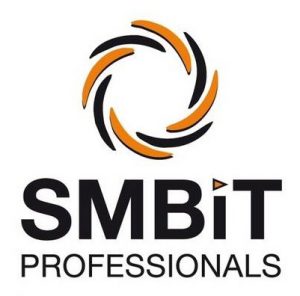Are you looking to gain an edge as an MSP owner or technician? Would you like to be able to turn to people outside of your business when facing a challenge? Would you enjoy forming connections that help you grow?
If so, you’re the perfect candidate for finding a peer group or mentor. I don’t believe there’s ever a time in life where you aren’t in a space to receive guidance from either.
Your MSP business and career will flourish in numerous ways if you seek out these opportunities. Let me tell you why and explain how you can get started.
Tap into an instant support system
Peer groups
Peer groups give an MSP (or any small to mid-sized business honestly) an opportunity to be in the same room with real people who share the same goals and face the same challenges. This dynamic allows you to openly bounce ideas off each other and compare what’s worked and what hasn’t.
Knowing you aren’t alone boosts your mental health, which impacts your business’s performance more than you think. Studies link peer support to “increased hope in the future and an improved sense of empowerment.” You’ll find it easier to cope with your situation while you explore solutions.
Mentorships
Similarly, mentorships offer the encouragement needed to keep going. Imagine having a consultant, confidant, coach, sounding board, and friend all for the price of you simply succeeding.
Under a mentor’s guidance, you’ll improve your confidence and self-awareness, as well as goal setting, communication, and listening skills.
I’ve had a mentor since I started my career in the MSP industry a decade ago. Eager, inexperienced, and extremely young, I benefited from having someone see something in me that I didn’t see in myself and invest in it with no personal gain.
Improve your skills and knowledge
Peer groups
Peer groups are designed for you to “absorb best practices and learning from the collective experience of members,” writes Oracle exec Jeb Dasteel in Forbes.
You’ll stay on top of industry trends and thought leadership by participating in discussions and scooping up actionable resources. Speaking with people who’ve already tried initiatives you’re looking to implement will allow you to learn from their mistakes.
Many peer groups also have business documentation ready for you to use, saving you from spending time developing your own. For example, The Tech Tribe provides members with useful templates, such as an MSP agreement, a new client onboarding checklist, and an IT budget template.
Mentorships
One advantage a mentorship has over peer groups is the 1:1 format, allowing you to focus on learning more about the topics that matter to you at your own pace.
John Rampton says his mentor helped him “get up to speed faster and shortened [his] learning curve” on the various responsibilities of running a business.
Mentors can also help address your blind spots by providing a safe place for constructive criticism. Film director George Lucas once said, “Mentors have a way of seeing more of our faults than we would like. It’s the only way we grow.”
Expand your connections
Peer groups
In addition to sharing knowledge, crossing paths with the right people can provide you with opportunities you wouldn’t come across on your own and set your MSP on a whole new growth trajectory.
Attending meetings and trade shows hosted by your peer group or regularly chiming into the online forum is a great way to network. You may discover MSPs you’d like to partner with or set up a way to refer business to each other outside of your specialties.
As a bonus, collaborating with more people will help broaden your perspective. You’ll not only find yourself with more potential answers to any questions, but also enrich and diversify your thought process by engaging with people outside your existing circle.
Mentorships
A mentor may have contacts they can introduce you to, which could open doors you wouldn’t have access to otherwise. Having a mutual connection recommending you to someone is much more effective than cold emailing.
“My mentor willingly shared his network with me, taking me to events and making introductions that led to many opportunities I would not have otherwise had,” said John Rampton, entrepreneur and investor.
Find the right one
Peer groups
According to Forbes, “the right peer group can be the difference between incremental and exponential growth.”
Before joining any peer group, look into the guidelines and requirements. The cadence of meetings and other commitments may be too much or too little for what you’re looking for.
Note that some peer groups get together in person while others live solely online. Ask yourself whether you’re willing to travel or would prefer to engage virtually.
Peer groups are meant to be transactional—don’t hesitate to be transparent in what you can provide or what you’re hoping to gain. But that doesn’t mean you won’t also form meaningful friendships along the way.
Mentorships
Mentors have a tendency of finding you, but don’t be afraid to find them either.
For an MSP just starting out, finding a mentor may seem like a daunting task but your mentor doesn’t have to be a multimillion-dollar executive.
Think about where you find yourself looking for guidance or inspiration in your business and start there.
Mentors live in plain sight. You’re probably in an unspoken mentorship without knowing, which is OK. Once you realize it, lean into it.
Explore your peer group options
Here’s a list of peer groups and communities I recommend checking out, along with some information about each.

The Tech Tribe (Worldwide)
- “One of the world’s most loved programs and communities for MSPs” with 3,100+ MSP members, 102,000+ community posts, and 150+ templates & resources. Leader Nigel Moore is an amazing resource who gives generously of his expertise.
- Download world class templates, watch exclusive business training, and access a supportive community.

IT Nation Evolve (US)
- “The largest global IT community of thought leaders, experts, and peers dedicated to pushing each other and the IT industry to new heights”
- Meet virtually or in person with owners, sales leaders, and service techs to help navigate your business journey.

- Business Improvement Groups (or BIGs) consist of 10-12 non-competing members that serve as a close network of advisors you can call upon when you have a business issue you’d like input on from outside the company.
- Meet with the group in person twice per year for two days. The other 10 months, the group has a 90-minute conference call to discuss implementing efficiencies and processes in your business to drive more profits to your bottom line.

Network Group (UK)
- A UK group for IT entrepreneurs and business leaders who want to contribute to and benefit from a community of peers through networking, professional development, partner and distributor relationships, and purchasing power.
- Access highly competitive vendor pricing, increased visibility through powerful marketing, shared resources, training, and best practices.

SMBiT (Australia)
- A member organization for IT service providers who specialize in small and medium business. SMBiT represents more than 350 business owners and professionals.
- Build an effective network to expand your capabilities and your business with access to business documentation galore, vendor discounts, and voting rights.

IT & MSP Business Owners (Facebook)
- A global community that allows technicians and vendors to communicate openly and learn from one another.
- Share knowledge with other MSPs, collaborate freely, and attend live events on a platform you’re probably already on.

IT/MSP Entrepreneurs (Facebook)
- A community for current and new business owners in the IT and MSP industry.
- Share resources, offer advice and ask questions related to business, marketing, and sales.

Syncro Users Group (Facebook)
- A community of almost 3,000 MSPs discussing best practices in and out of the platform.
- Learn how to optimize your platform usage and get updates on emerging technology and feature releases.
Many vendors have their own subreddits, Facebook groups, and community forums where you can share tips and tricks with other users, including Syncro. We’ve shared ours as an example, but you can also search for the tools you use most to find other targeted user groups.
Whether you’re looking for industry secrets, resources, or comradeship, you can find that—and more—in a peer group or mentorship.
Share














